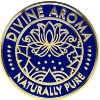Purity and testing of Essential oils
Essential oils are relatively expensive. As with most things the price is comparable with the quality, and the quality is definitely comparable with the results when essential oils are used for therapeutic purposes.
For the purpose of Aromatherapy, only the best and the purest essential oils will give the desired effect.
The prices of the essential oils are dependent on a number of factors, some of them being:
- Percentage Yield: This depends on the part of the plant the oil is extracted from, the time of the year, the time of the day, the soil and so on. For instance, Rose or Jasmin are fairly expensive. A cheap / medium-priced one may probably be a lower quality oil, or maybe adulterated in a synthetic oil which may be a good imitation of the fragrance, but will not have the same qualities as the real deal.
- Place of Origin: The price also depends on the place of origin of the essential oil. For instance, one firm may import Chinese Jasmin which is fairly cheap as compared to another firm who imports from Morocco which is highly-priced.
- Quality of the oil-dependent on the geographical region: The quality of the oil also depends on the where it is grown. The soil of the particular region and its climate contribute enormously to the quality of the oil. Example: Bergamot is best known to be of the highest quality if sourced from Italy even though it is grown in other parts of the world too. Tea tree is known to be the best when sourced from Australia.
Blot paper test:
Since essential oils are not greasy, most of them do not leave an oily mark on blotting paper, as would a drop of other oils we know, like corn oil.
Hence, to test the purity of the essential oil at home, here is a simple test:
- On a sheet of paper, write down the essential oil name for your convenience with a circle drawn beside it.
- With the glass dropper, put one drop of essential oil in the circle drawn.
- The oil may take 30 minutes - 2 hours to dry. Check if there is a greasy ring / mark around the drop. If there is a greasy ring, the oil may be adulterated. If there is no greasy mark, the oil is pure.












